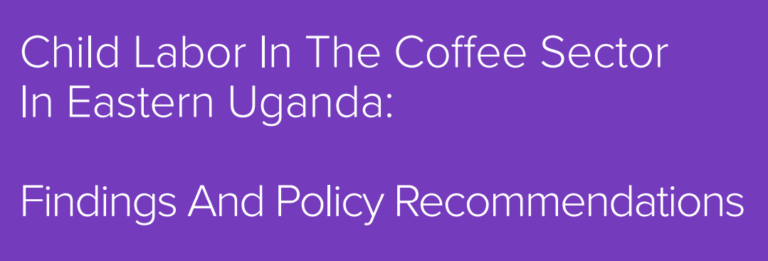Child labor in coffee production in Eastern Uganda is widespread. Engaged in such activities as picking and sorting berries or transporting beans and supplies, children working in Uganda’s coffee supply chain (CSC) experience risks to their safety and mental and physical wellbeing.
In 2022, GFEMS commissioned the Centre for the Study of the African Child Africhild Centre and Terre des Hommes Netherlands to conduct a scoping study to identify drivers of child labor in Eastern Uganda’s coffee sector. This study also evaluated Uganda’s regulatory framework, identified key service providers, and highlighted promising prevention and prosecution interventions to reduce child labor in coffee production in Eastern Uganda. Based on findings from this research, including that child labor in Uganda’s coffee sector exceeds previously reported rates, GFEMS and its partners developed targeted recommendations to guide action by both policy-makers and program implementers.

